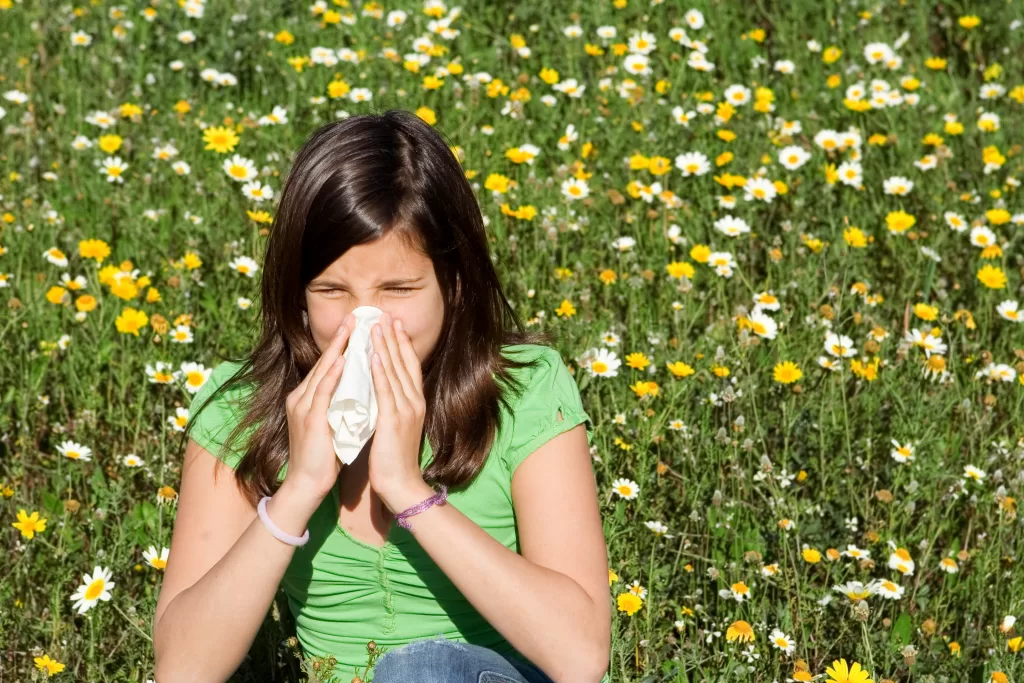If you have been suffering, a gardening expert has shared their top tips to reducing the grass pollen with some simple lawncare steps.
With May marking the start of grass pollen season, Lucie Bradley, a greenhouse and gardening expert at Two Wests & Elliott, has shared her advice.
One in five Brits suffer from hay fever each year, with the three main types being, tree pollen (peaking during March to May), grass pollen (peaking during May to July) and weed pollen (peaking during June to September).
In collaboration with Toolstation, Lucie shares three top tips to help reduce grass pollen in your garden…
1. Increase mowing frequency
This may sound counterintuitive, but letting your grass grow long increases the amount of pollen it releases.
Longer grass blades produce more pollen.
Allowing grass to grow longer also allows for flowers and weeds to grow.
Daisies and dandelions are popular additions to a lawn, but these are some of the worst culprits for high pollen.
She said: “It is recommended to mow the lawn once a week throughout summer as this is the period of peak growth.
“And as a general rule of thumb, you should never remove more than a third of the grass height with each mow.”
2. Water the lawn to douse pollen
Gently watering a lawn helps to reduce pollen levels as this can stop the pollen particles from spreading into the air.
The best time of day to water a lawn is during the early morning between 6am and 10am as this is typically the coolest time of day so the water will not evaporate.
Make sure your lawn is dry before nightfall however, as leaving your lawn damp overnight will make it more susceptible to disease.
Lucie added: “It’s best practice to soak your lawn once a week for 5-10 minutes depending on the lawn size.
“During Spring and Autumn you can count on rainfall to do this for you but during the dryer Summer months, it’s crucial to maintain a regular watering cycle.
“With that in mind, it’s a good idea to prepare for hosepipe bans. A water butt is a simple yet effective way to store collected rainwater for use in the garden.”
3. Remove any leftover grass clippings
While grass clippings can help to release nutrients back into the remaining lawn, they can also aggravate grass pollen.
This is because excess clippings can get picked up by the wind which in turn can help release more pollen into the air to agitate symptoms.
The expert continued: “It’s best practice to collect grass clippings in the lawnmowers grass collection box before disposing these either in a green garden waste bin or onto a compost heap.
“Once the peak pollen season has ended, then clippings can be scattered back onto the lawn.”
Five tips to reducing hay fever symptoms in the garden
TV Pharmacist Thorrun Govind also shared five expert tips to help reduce hay fever symptoms in the garden…
Wear a face mask and gloves
Wraparound sunglasses or a mask can help stop excess pollen entering your nose and eyes when gardening.
Likewise, wearing gloves can help prevent face touching and spreading pollen onto yourself.
Check the forecast to avoid high pollen days
Most weather apps now have a built-in pollen indicator that can forecast the levels for the day ahead.
These levels can fluctuate depending on the weather, the wind direction, and even the time of day.
Avoid the morning when pollen levels are higher
On an average day, pollen counts rise during the morning, peak at midday, and then gradually fall throughout the afternoon.
Because of this, it’s often better to garden later during the day.
Shower immediately when back indoors
When coming back inside from the garden, make sure to shower and change your clothes to wash off any pollen.
Also, avoid sitting on any furniture in your outside clothes, especially your bed, as this can transfer pollen onto the surface and irritate allergies further.
Keep windows and doors closed when mowing grass
Mowing the lawn can temporarily release more pollen into the air, so it’s crucial to keep all windows and doors closed to prevent airborne pollen from entering the home.
